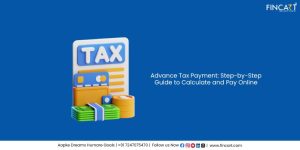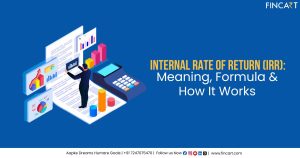Some of the documents required for ITR filing are compulsory for every individual taxpayer and some depend on the source of the taxpayer’s income, such as salary, business profits, and investment profits. Here, we’ve compiled a list of these ITR-relevant documents and sorted them into categories – Documents pertaining to personal information, Income-related documents, Deduction-related documents, and Documents relevant to tax payments. Have them at the ready to ensure a smooth tax filing experience. Not only is it efficient, but it also enables you to stay compliant and makes sure you won’t have to deal with last-minute scrambles to gather necessary documents.
Personal Information Documents:
You need the following documents related to personal information to verify:
Aadhaar Card:
An Aadhaar Card acts as your main identification proof, so it’s essential to have one. Under Section 139AA of the Income Tax Act, every tax filer must provide their Aadhaar details. If you do not have an Aadhaar Card, you can apply for it before filing your tax and use the temporary Aadhar enrolment number. Always keep your Aadhaar up to date and link it to your PAN Card.
PAN Card:
Your Permanent Account Number (PAN) is also an essential document for ITR filing. After you’ve filled out all your information, the last step for filing an ITR is e-verification. If you don’t complete this step, your entire effort will be fruitless and you might as well have not bothered with it at all. If you link your PAN and Aadhar Card you can make this e-verification process much easier. While you can send a physical copy of ITR-V to verify your return, you can do it simply by requesting an OTP on your Aadhaar registered mobile number.
Bank Account Details:
The Income Tax Department needs your bank details to verify your financial activities. When you’re filing your returns, the department will ask you for the bank details of every active bank account you have. These details include the bank name, bank account number, and their IFSC codes. In case you have multiple accounts, you’ll have to select one as primary in order to receive tax refunds, if applicable.
Income Documents:
Form 16:
Form 16 is issued by employers and it provides the summary of TDS from employee’s salary, and that’s why it is a crucial document for salaried taxpayers. Form 16 thus also acts as proof of salary income. It is divided into two parts – Form 16 A and Form 16 B.
Form 16A/16B/16C:
Form 16 A includes the employee’s PAN details, and the PAN and TAN details of the employer. It also summarises the tax deducted at source by the employer and a quarterly summary of salary payments to the employee. It is issued by the entity deducting the tax. Form 16 B contains the details of the employee’s salary, deductions, and allowances such as exempt allowances and perquisites. Form 16 C pertains to the tax deducted at source by the tenant on the rent paid to the landlord. If the monthly rent exceeds Rs. 50,000, TDS is deducted at 5% by the tenant and paid to the government on the landlord’s behalf.
Rent Receipts:
Rent receipts are important for individuals who earn a rental income. It’s also important for tenants to keep the rent receipts from their landlords to claim deductions such as House Rent Allowance and also in case your employer or the Income Tax Department requests them later.
Statement of Interest Income:
Interest income includes income earned from interest-paying investments like fixed deposits and savings accounts, which is taxable. Make sure to have a detailed statement of interest income from banks or post offices for accurate tax filing.
Income from Investments:
When you invest in assets such as mutual funds, stocks, bonds, and fixed deposits you can earn an income in the form of capital gains, interest, and dividends. Gather the relevant proofs of income from your investments such as capital gains statements and dividend statements for accurate reporting. You’ll only need a capital gains statement if you have sold an asset.
Any Other Income:
You must have proof of income on all your earnings in a financial year, so apart from salary, business, and investments if you earned money through other sources such as lotteries, royalties, or freelance work, you must have the relevant receipts, statements, and invoices.
Deduction Related Documents:
According to the Income Tax Act, one can claim tax deductions by investing and insuring. Investments in certain products such as Equity Linked Savings Schemes (ELSS), Public Provident Fund, and Unit-Linked Insurance Plans, as well as payments towards health and term insurance premiums, are eligible for tax deductions. Here are the documents required to avail of these deductions
Investment Proofs:
Various investment options offer tax deductions under Sections 80C, 80CCC, 80CCD (1), 80CCE, and 80CCD (1B). You’re gonna need documents such as mutual fund statements and certificates from the relevant institutions to prove that you’ve made an investment in a deduction-eligible scheme.
Home Loan Interest Certificate:
Section 80 EEA deals with deductions on interest paid on a home loan. Proof of home loan and a certificate is required for claiming this deduction while filing for ITR.
Don’t fall behind your taxes!
Get in touch with Fincart to handle your taxes and optimize your savings.
Medical Bills and Insurance Premium Receipts:
Under Section 80D, a health insurance policyholder can claim a deduction of up to Rs. 25,000 per year on premiums paid. If one also insures their parents they can claim an extra Rs. 25,000 deduction which rises to Rs. 50,000 if their parents are senior citizens. Keep the relevant health insurance policies handy to claim deductions while filing ITR.
Deductions for Education Loan:
Under Section 80E of the Income Tax Act, you can claim tax deductions on education loan interests taken for higher education. You can also claim this deduction if your spouse or your children have taken the education loan, so keep the loan certificate and interest payment receipts ready.
Tax Payment Documents:
Challans:
A Challan is a form through which one can pay income tax online or offline. Challans are important for reconciling your tax liabilities while filing your ITR.
- Challan 280 is for online payment of income tax by individuals and corporations and is used to pay both Advance Tax and Self-Assessment Tax.
- Challan 281 is used for payment of TDS.
- Challan 282 is used to pay estate duty, gift tax, expenditure tax, and other direct taxes.
- Challan 283 can be used for wealth tax payments.
- Challan 284 is used to deposit Tax Collected at Source (TCS) on the sale of specific goods.
- Challan 285 is used to pay the Income Declaration Scheme (IDS) tax.
One has to analyse the type of tax liability on them and select the relevant Challan.
TDS Certificates:
Tax is deducted at source from various sources of income such as salary, rental income, interest, commission, salary, and so on. The entity or person that deducts tax at source issues a TDS certificate which provides details of tax deducted at source and helps you in claiming credit for TDS while filing your ITR.
Form 26AS:
Form 26AS gives an overview of the tax that others (deductors) have deposited to the Income Tax Department on your behalf. For example, TDS deducted by your employer on your salary, TDS deducted by the bank on your fixed deposit interest, and tax deducted by your tenant (for rent above Rs. 50,000). Hence, it’s important to review Form 26AS to ensure that the details always match your records.
Business/Profession Related Documents:
Business owners require many different documents such as:
- Balance Sheets
- Profit and Loss Statements
- Bank Account Statement
- GST Returns
- Inventory/Machinery Receipts
Other Relevant Documents:
Previous Years’ ITRs:
Previous years’ ITRs can be useful for reference of previous deductions and ensuring your reporting of income and deductions is accurate.
Aadhaar OTP:
Verification must be done within 30 days of tax filing, so you can complete the process quicker digitally. If your PAN is linked to your Aadhaar, all you need to is an OTP on your registered mobile number to complete your e-verification and tax filing process.
Digital Signature Certificate (DSC):
A Digital Signature Certificate validates and certifies the identity of the person and includes details such as the name, PIN code, country, email, details of certifying authority, and when the certificate was issued. Basically, it authenticates a digital document similar to how a written signature authenticates a printed document and helps you securely sign your online tax return. One can use DSC to e-verify ITR returns.
Conclusion
Filing your Income Tax Returns early is really important to avoid errors and ultimately, penalties. If you rush through your taxes at the last minute, you run the risk of mismatching information, which might end up costing you penalties or delaying your tax refunds. Double-check your documents and make sure that all the information matches up and use this blog as a checklist to make sure you’ve got all the documents you need for smooth ITR filing.
Also Read: Tips to Save Income Tax on Salary




